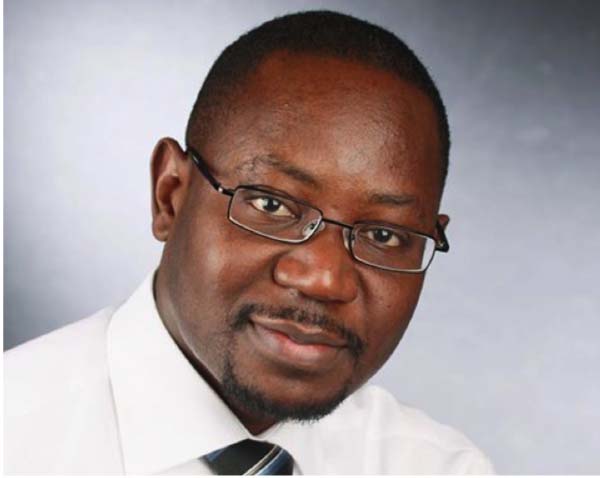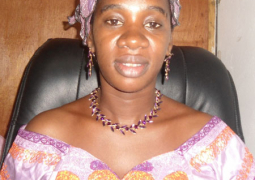
The
Minister of the Interior, Ahmed Mai Fatty, has said his intention is to change
the Gambia Police Force into the Gambia Police Service, as it is a force to
serve the Gambian people.
Minister
Fatty made this known yesterday, when declaring open a three-day training of
trainers’ workshop on human rights protection for law enforcement officers
organised by Institute for Human Rights and Development in Africa (IHRDA), and
held at the Paradise Suites Hotel.
The
new Interior minister, asserting that policing needs to be a respected public
service, said the institution will be reformed, reviewed and expanded to make
the service more attractive, and to improve community policing with respect for
human rights at the core.
“We
will review the Police Act; we will look at the Prisons Service Act and reform
the Prisons Service; and look at every legislation as it affects the
sovereignty of every citizen and individuals, because every citizen is
important.”
Minister
Fatty said the workshop was timely and important as everyone is talking about
the new Gambia, adding that the new Gambia is a new citizen with new
consciousness as every Gambian has a role to play.
The
Gambia is fundamentally different from what it used to be, he went on, adding
that on December 1, 2016 when Gambians voted, they voted for their future; they
voted to change their lives; they voted not only to change the government, but
the system and to replace it with something they desire.
He
declared that as the minister tasked with the internal security of the country,
respect for human rights is an integral component of the security of society,
adding that it is the foundation of good governance.
The
Gambian people’s sovereignty should be respected and their dignity upheld so
that constitutionality, the rule of order, be restored to ensure an enabling
environment and atmosphere for them to realize their God-given talents.
Minister
Fatty said the liberty of the individual is sacrosanct, in the perfection of
everything that would build up a greater foundation for a compassionate
society.
“A
society that cares for its citizens; the rule of law and sustainable
development - when we say that, we mean we must respect the rights of a subject
and he/she should not be detained beyond the constitutional period - put
yourself in their own shoes.”
He
continued: “Would you like to be detained beyond the constitutional period;
would you like to be tortured; sent to jail without having your bail in court;
would you like to be brutalized, maltreated or be in an environment where
nobody cares about the law, but the executive directives in exercise of
marauding powers?”
Minister
Fatty further stated that policing is about acting as servant of the people;
and that his vision is to have service delivery police force that would serve
the people, and the country as it the responsibility and obligation of the
police to serve the people.
“The
people pay you and me, the tax-payers, the ordinary Gambian sitting at the
market roasted peanuts. The people pay us to serve them.”
Minister
Fatty assured the workshop participants (mainly police officers) that some of
the instruments, both domestic and international, including the constitution
would be of valuable importance to them.
He
noted that The Gambia Constitution is one of the best, as there are entrenched
clauses that protect the fundamental rights of the individual.
“We
don’t need more laws; what we need is the steady enforcement of the existing
laws, if we go by the dictates of the constitution and directive principles of
state policy that would enable us make our jobs easier.”
Minister
Fatty added that he is aware that the police force has been working under
extreme difficulties, challenges faced in terms of facilities, infrastructure,
and capacity building, among others.
He
assured the police officers that he is with them, and that he knows how hard
and difficult it is for them to make ends meet.
Minister
Fatty expressed gratitude to the Institute for Human Rights and Development in
Africa (IHRDA) and their international partners for sponsoring the project.
In
his welcome remarks, the Executive Director of IHRDA, Gaye Sowe, said the
training workshop could not have come at a better time, when The Gambia is
celebrating a rebirth, and transitioning into a fully democratic state with
respect and regard for human rights and the rule of law.
Mr
Sowe said the IHRDA had planned to have the workshop earlier this year, but
could not due to the recent political impasse in the country.
He
pointed out that the workshop was a continuation of a similar project, carried
out from October 2015 to March 2016 for officers of the Gambia Police Force and
other law enforcement agencies, to build their capacities on the human rights
regulations that apply to policing.
He
also said the IHRDA had organized eight workshops in seven locations across the
country; two in the Greater Banjul area and one each in Basse, Farafenni,
Janjangbureh, Mansakonko, Brikama and Barra, and that they had trained a total
of over 300 officers at these workshops.
The
IHRDA had produced a human rights manual for use of the police and other law
enforcement agencies, he announced.
Director
Sowe further stated that the workshop was part of a project design by the IHRDA
to improve the situation of human rights in The Gambia, by building the
capacities of officers of the Gambia Police Force.
As
part of the project, the Executive Director said, the IHRDA would also develop
a comprehensive human rights module in the curriculum of the training school
for Gambian law enforcement officers, incorporating international human rights
standards and their practical application to the Gambian context.
It
would develop a user-friendly human rights training manual for Gambian public
security officers, building on the human rights module to be developed as
above, he continued.
The
training manual will be developed with 150 copies to serve trainers at the
training school, and other relevant senior officers who supervise staff in the
service.
Director
Sowe thanked the government of Canada and the CFLI for sponsoring the project.
Representatives
of the Inspector General of Police, the Attorney General and Minister of
Justice, and members of the diplomatic and consular corps attended the opening
ceremony.


